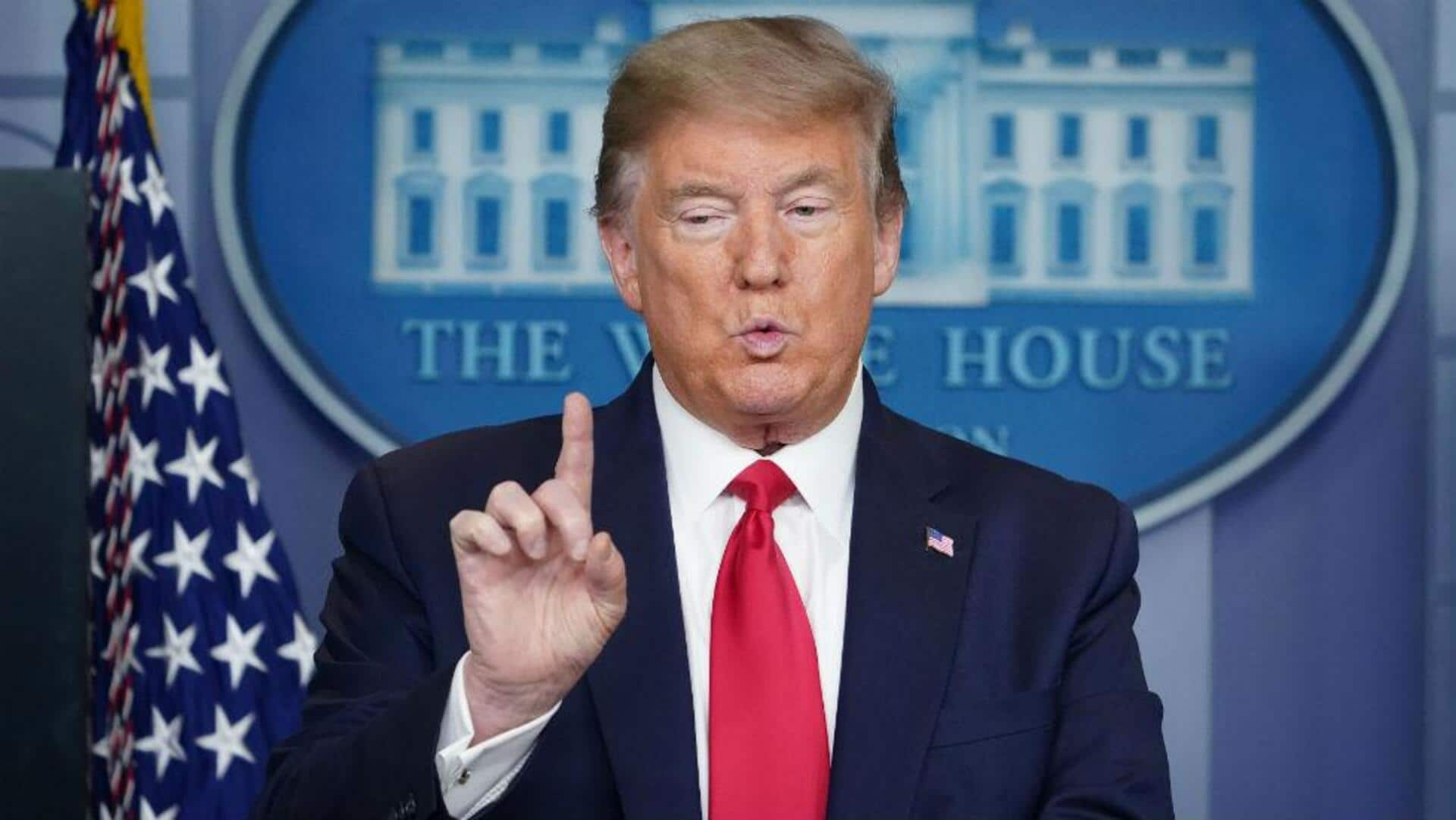
Trump ends 'de minimis' exemption: How it'll impact US buyers
What's the story
The US has officially ended the "de minimis" exemption, a move that will have a major impact on online shoppers. The change means that all foreign parcels worth under $800 will now be subject to duties. The Trump administration says this is necessary to combat smuggling and counterfeiting, but it could also lead to higher prices for consumers and disrupt global postal services.
Tariff details
Transition period with flat fee system
The new tariff regime comes into effect on August 29, 2025. To ease the transition, Washington has introduced a six-month flat fee system. Instead of value-based tariffs, parcels will be charged a flat fee of $80 to $200, depending on the origin country. After this period, the regular duty system will apply to all packages.
Postal disruption
Global postal services affected
The new tariff regime has already started affecting global postal services. Several foreign postal operators, including those in India, Australia, and parts of Europe, have temporarily suspended or reduced deliveries to the US. They argue that the sudden change has created uncertainty in customs clearance and increased costs for carriers. This could lead to higher online shopping costs and slower deliveries for American buyers.
Price impact
Online shopping costs to rise
The end of the de minimis exemption could lead to higher prices for consumers. Smaller sellers, especially those on platforms like Etsy, eBay, and Shopify, are unlikely to absorb the costs of tariffs or stricter customs compliance. Instead, many are expected to pass these costs directly onto their customers. This could make online bargain hunting more expensive, especially for handmade or imported products.
Tariff expansion
Trump reinstates tariffs on imports from India
On July 31, Trump reinstated and expanded tariffs on several trading partners, citing a continuing national emergency. The tariffs were reimposed after little progress in trade negotiations. As part of the revised policy, a 25% tariff was slapped on Indian goods. Additionally, Trump introduced another 25% tariff specifically targeting India for its ongoing purchases of Russian oil, taking the total tariff impact on Indian exports to 50%.